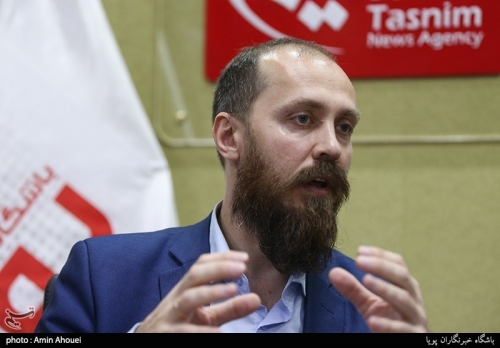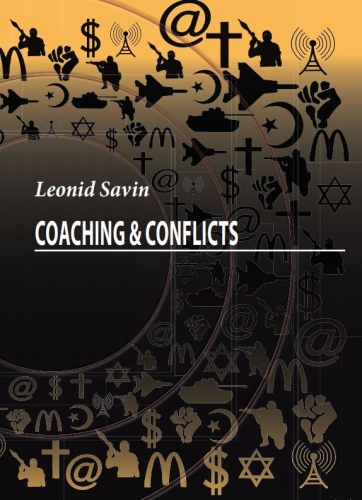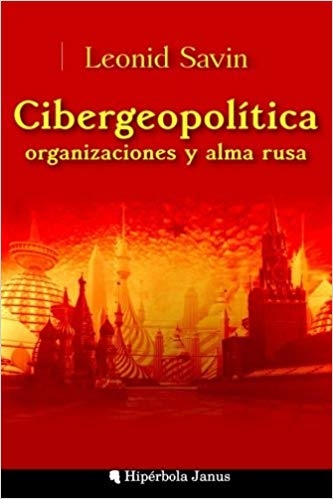dimanche, 01 mars 2020
The new art of war

The new art of war
 Coaching & conflicts deals with the theory concerning the “new art of war”, which is also the title of the Italian edition [1]: not only information and disinformation as they are generally understood but also, among other things, the set of methods by which a country can be affected economically and socially through the manipulation of its economy on international markets, so as to favor a change of government (or “regime”, just to use a word that makes so much bad anti-demokrats...). From these manipulations to the sadly known colored revolutions, perhaps followed by an external military intervention, the step may not be really immediate but still remains tragic: Libya docet, the Latins would say, and so also Syria even if right against the lions of Damascus the mechanism has jammed, showing its inevitable limits.
Coaching & conflicts deals with the theory concerning the “new art of war”, which is also the title of the Italian edition [1]: not only information and disinformation as they are generally understood but also, among other things, the set of methods by which a country can be affected economically and socially through the manipulation of its economy on international markets, so as to favor a change of government (or “regime”, just to use a word that makes so much bad anti-demokrats...). From these manipulations to the sadly known colored revolutions, perhaps followed by an external military intervention, the step may not be really immediate but still remains tragic: Libya docet, the Latins would say, and so also Syria even if right against the lions of Damascus the mechanism has jammed, showing its inevitable limits. Q) Why did you want to publish Leonid Savin's essay?
Q) Why did you want to publish Leonid Savin's essay?
00:43 Publié dans Actualité, Géopolitique, Livre, Livre | Lien permanent | Commentaires (0) | Tags : actualité, géopolitique, livre, leonid savin, politique internationale, belligérance, guerres de nouvelles dimensions |  |
|  del.icio.us |
del.icio.us |  |
|  Digg |
Digg | ![]() Facebook
Facebook
jeudi, 21 février 2013
Huurlingen en drones, de oorlog van de toekomst
Huurlingen en drones, de oorlog van de toekomst
- door Antoine Uytterhaeghe
- Ex: http://www.uitpers.be/
 John Brennan werd door president Obama gevraagd om de CIA te leiden. Voor week, begin februari 2013, zei hij nog in de aanloop van een hoorzitting in de Senaat die over zijn aanstelling handelt, dat het inzetten van drones 'menselijker' is dan het gebruik van bommen en artillerie, en dat burgerdoden schaars zijn.
John Brennan werd door president Obama gevraagd om de CIA te leiden. Voor week, begin februari 2013, zei hij nog in de aanloop van een hoorzitting in de Senaat die over zijn aanstelling handelt, dat het inzetten van drones 'menselijker' is dan het gebruik van bommen en artillerie, en dat burgerdoden schaars zijn.
De manier van oorlogsvoering is de voorbije tien, vijftien jaar grondig gewijzigd. De militaire doctrine van Washington en zijn bondgenoten stelt het streven centraal naar “zero doden” in eigen rangen, en een maximum impact bij diegene die als vijand is gebrandmerkt. Daarom worden opdrachten uitbesteed aan privé-ondernemingen, en worden onbemande vliegtuigen ingezet om 'gerichte' aanvallen uit te voeren.
Regelmatig worden we geconfronteerd met berichten in onze grote media over de preciesheid van Amerikaanse aanvallen met drones tegen de vijanden, niet zelden moslims. Dat is ook de stelling van de kandidaat-directeur voor de CIA. Drones zijn onbemande vliegtuigen van allerlei formaat, van lichtgewicht modellen tot toestellen met raketten aan boord.
Media willen ons voorschrijven hoe en wat we moeten denken. Ze besteden dan ook veel aandacht aan de afschuwelijke schiet- en moordpartijen in de VS, maar zijn door de band veel stiller over de moordende drone-aanvallen op individuen, op dorpen en huwelijkfeesten in Afghanistan of Pakistan. Ze willen het officiële beeld over het dronegebruik en de zogenaamde 'preciesheid' van deze bombardementen helemaal niet in vraag stellen. Vallen er burgerslachtoffers dan worden die afgedaan als een jammerlijke vergissing. Naar verluidt spreekt men in bepaalde kringen liever over UAV (onbemand vliegtuig) dan over drones, omdat die laatste term toch meer aan willekeurig doden lijkt gekoppeld.
nieuwe vijand
Na de implosie van de Sovjet-Unie in de jaren negentig van de 20ste eeuw, had de Amerikaanse supermacht geen imperium van het kwaad meer dat moest bestreden worden. Wilde Washington zijn immense oorlogsmachine en wapenindustrie draaiende houden, moest het op zoek gaan naar een nieuwe satan. Die werd snel gevonden bij de islam. Dit nieuw vijandbeeld paste perfect om de imperiale controle over de energiegrondstoffen, rijkelijk voorhanden in de Arabische regio, te helpen garanderen. De Westerse leiders doen er alles aan om de economische belangen veilig te stellen. Het is daarom onontbeerlijk een sterke militaire macht te ontwikkelen en die in te zetten tegen weerbarstige landen die zich niet willen onderwerpen; vooral als er olie en gas te vinden is.
De ware doelstelling is drievoudig: de invloed van de islam ondergraven door landen tot een puinhoop te herleiden; het bemachtigen van de controle over de olie en gasvelden en het uittesten op hun doeltreffendheid van nieuwe hoogtechnologische wapensystemen.
De vriendenkring van het Westen is nogal wisselvallig, vandaag kan men vriend zijn en morgen gedoodverfde vijand. Dit hebben we nog in het recente verleden kunnen vaststellen in Irak en Libië.
In Irak was Saddam Hoessein de grote vriend toen hij met Amerikaanse hulp en de autocratische feodale heersers van de petrodollarmonarchieën een oorlog tegen Iran ontketende na de val van de trouwe Amerikaanse bondgenoot, de sjah van Perzië. De vriendschap met Bagdad bekoelde toen Saddam Hoessein het aandurfde in conflict te komen met zijn beschermheren – de Iraakse inval in Koeweit - die hem steunden tegen het Iran van ayatollah Khomeini. Er werd besloten om hem te vervangen door meer volgzame marionetten – in de praktijk is dat uitgedraaid op een intern sterk verdeeld Irak – om zo de greep op de Iraakse olie en gas voor het Westen veilig te stellen. Dit alles in naam van het bewerkstelligen van democratie naar westers model. De aanval paste in de 'war on terror' politiek van G.W. Bush, hoewel het duidelijk was dat Irak niets van doen had met Al-Qaeda. Er werd niet geaarzeld om het land in puin te leggen, de infrastructuur zoals elektriciteitscentrales, waterzuiveringstations, havenstructuur, hospitalen te verwoesten, behalve het ministerie voor olie. Het land werd terug naar het stenen tijdperk gebombardeerd.
In Libië hebben we een gelijkaardig scenario kunnen vaststellen, Qadafi was na een periode van paria-statuut geëvolueerd naar vriend en geldschieter voor bepaalde Europese politici bij hun verkiezingscampagne en goede klant van de westerse wapenindustrie, tot hij niet langer paste in de westerse strategie voor Noord-Afrika en het Midden-Oosten.
privé legers
Nieuw in de Amerikaanse en NAVO strategie in vergelijking met de klassieke oorlogsvoering, is de uitbesteding van militaire taken aan privé militaire ondernemingen. Het beroep doen op en inzetten van huurlingen uit privé ondernemingen vormt een groeiend bestanddeel van de westerse militaire doctrine in de oorlogen in Irak, Afghanistan, Libië en Syrië om de doelstelling van zero doden in eigen rangen te bewerkstelligen.
Wat we vandaag vaststellen is dat de Verenigde Staten militair aanwezig zijn in meer dan 50 landen. Een politiek om militaire opdrachten uit te besteden aan privé maatschappijen, laat het Pentagon toe om een deel van het militair optreden te onttrekken aan parlementaire goedkeuring. Tevens wordt kritiek van de bevolking op zijn optreden vermeden. Het is een oorlog met volmachten voor de privé militaire ondernemingen. Dode huurlingen worden niet beschouwd als soldaten. Sinds het begin van deze eeuw kennen de militaire privé ondernemingen een gestage groei. Deze huurlingenmaatschappijen zijn voor hun aandeelhouders zeer rendabel. Blackwater – vandaag heet deze onderneming Academi – haalde voor 1 miljard dollar aan contracten met de VS regering binnen. Het aantal huurlingen van deze maatschappij werd op 23 duizend geschat en het zakencijfer steeg voor de periode van 2001 tot 2006 met 80 procent. In de periode van 2005 en 2007 werden er 195 ernstige incidenten geteld waarbij Blackwater betrokken was.
de toekomstige oorlogen
Onze gevestigde media laten zich lovend uit over de succesrijke inzet van de moderne wapens. De efficiëntie van deze wapens wordt dan ook ijverig gepromoot op de internationale wapenbeurzen waar de oliemonarchen hun honger naar nieuwe wapens komen stillen. Hun wapenarsenaal wordt dan tegen hun eigen volk of tegen buurlanden ingezet, zoals in Bahrein, om er de heersende monarch op zijn troon te houden. Het nieuwe aan de moderne wapens is dat ze onderdeel zijn van een hoog elektronisch technologisch netwerk. Het gaat hier niet om sciencefiction maar om realiteit. De strijders dragen op hun rug een elektronische uitrusting die verbonden is met de rest van de troepen, met de gevechtsvliegtuigen, pantserwagens en onbemande vliegtuigen. Deze operationele logistieke uitrusting is een belangrijk onderdeel om de militaire operatie met succes te voeren. Het is ook een belangrijk component in de toekomstige oorlogen om zo de doelstelling van zero doden in eigen rangen en een maximum aan vernietiging en doden bij de tegenstanders te bereiken.
doden met de joystick
Een belangrijke, technologische, helse nieuwigheid in de moderne oorlogsvoering, is het doden met drones. Deze onbemande vliegtuigen zijn zeer geliefd in militaire middens: sinds de jaren negentig van vorige eeuw worden ze steeds vaker ingezet. Ze werden uitgetest tegen de zwakkeren die hoopten te ontsnappen aan aanvallen, zoals bij het elimineren van Palestijnse leiders door Israël. Israël is een pionier in productie en gebruik van drones. De drones hebben de manier van oorlogvoering grondig gewijzigd. Men doodt de tegenstrever door een druk op de knop vanuit een controlekamer, en op een computerscherm op duizenden kilometer afstand volgt men het projectiel van het type Helfire. Bij de US Air Force noemt men dat de “cockpit”. Het grote voordeel is dat er in eigen rangen geen materiële of menselijke schade is. Het is voor de VS en NAVO een comfortabele manier van oorlogsvoering zonder nadelige psychologische gevolgen.
Het gebruik van drones wordt gepromoot als een precieze manier om de vijand uit te schakelen en om bij te dragen tot het redden van mensenlevens. Dat is de lijn die de toekomstige CIA-baas mee propageert. Echter, de oorlogen van het Westen uit naam van democratie en vrijheid zijn geen rechtvaardige oorlogen en kennen geen moraal. Ze zijn nog meer immoreel wanneer er satellieten, drones en robots worden ingezet. Men doodt zijn tegenstrever, vrouwen, kinderen en burgers zonder ze te kennen, vanop duizenden kilometers afstand vanuit een operatiekamer ergens in de VS. Men doodt tegenstrevers of verdachten zonder juridisch proces. Dit is standrechtelijke executie.
Obama heeft zich tijdens zijn eerste ambtsperiode ontpopt tot de specialist voor het gebruik van deze drones. De terroristen worden geselecteerd om op de dodenlijst te komen, en de president geeft het bevel om de drones in te zetten. Dat is een doortastende methode, maar ze is heel vatbaar voor discussie.
De Amerikaanse drone aanvallen zijn het provocatie symbool geworden van de Amerikaanse macht, waardoor de nationale soevereiniteit van de staten met de voeten getreden wordt. Er wordt zomaar opgetreden tegen burgers van een ander land. Drones zijn zogenaamd bijzonder precies maar in de praktijk veroorzaken ze wel de dood van talrijke burgers. De officiële cijfers worden door onderzoek tegen gesproken. Het gebruik van drones is een consequent doortrekken van de militarisering van maatschappelijke problemen. Het gaat om fysieke eliminatie zonder verweer, met veel onschuldige slachtoffers. Van bij het begin van zijn intrede in het Witte Huis, heeft Obama het gebruik van de drones opgedreven: in Pakistan, Afghanistan, Yemen vooral.
De drone observeert zijn slachtoffers en zendt de beelden naar de commandocentrale in de VS. Daar druk de man van dienst, die geen besef heeft van de reële toestand op het terrein, op een knop om het moordend projectiel gericht af te schieten. Dat is de toepassing van de tactiek zero doden in eigen kamp. IJverige sabelslepers van Washington, het Pentagon en NAVO bazuinen z'n doeltreffendheid uit. Het is een aanmoediging om ongestraft conflicten op te starten, het luchtruim van landen binnen te dringen en zonder vorm van justitie over te gaan tot moord, onder de handige verpakking van de strijd tegen het internationaal terrorisme. Met John Brennan aan het hoofd van de CIA zal hier zeker geen verandering in komen.
Antoine Uytterhaeghe
00:05 Publié dans Actualité, Défense, Militaria | Lien permanent | Commentaires (0) | Tags : actualité, défense, militaria, mercenariat, drones, armement, guerre, belligérance, guerre postmoderne |  |
|  del.icio.us |
del.icio.us |  |
|  Digg |
Digg | ![]() Facebook
Facebook


